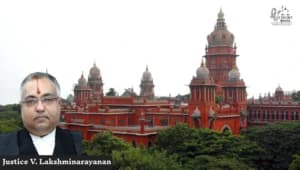In a recent judgment dated July 24, 2025, the Delhi High Court dismissed a revision petition challenging an interim maintenance order of ₹50,000 per month for a wife and her minor child. The court reinforced the husband’s legal and moral obligation to provide financial support under Section 125 of the Criminal Procedure Code (CrPC).
Background of the Case
The petitioner, contested a Family Court order directing him to pay interim maintenance to his wife, and their five-year-old son. The couple married in 2017, and the wife alleged cruelty and harassment, leading to their separation. She filed for maintenance under Section 125 CrPC, claiming the husband earned ₹4 lakhs monthly from ancestral properties. The Family Court awarded ₹50,000/month as interim relief, prompting the husband’s revision petition.
Read also:- Delhi High Court Rejects Maintenance Plea of Retired Teacher, Cites Self-Sufficiency
The husband claimed the order was passed without proper consideration of his financial constraints. He argued:
- He was unemployed and dependent on his ailing mother.
- The ancestral properties’ rental income (₹73,000/month) was shared among family members and received by his mother.
- The wife was qualified and capable of self-sustenance.
- The court denied his request for adjournment, violating natural justice.
The High Court dismissed these arguments, citing settled law:
"An able-bodied husband cannot evade his duty to maintain his wife and child. Financial constraints or unemployment are unacceptable excuses without compelling proof."
-- Shamima Farooqui v. Shahid Khan (2015) 5 SCC 705
Read also:- Delhi High Court Rejects Petition to Quash FIR in Domestic Violence Case Citing Abuse of Court Process
Key observations included:
Prima Facie Assessment: At the interim stage, detailed income proof isn’t mandatory. The court relied on the wife’s affidavit and the husband’s admission of shared rental income.
Moral and Legal Duty: The husband’s obligation extends beyond personal income. His joint family assets and residency indicated financial capacity.
Child’s Welfare: The minor’s needs (education, healthcare) justified the amount, irrespective of the wife’s qualifications.
Natural Justice: The husband had opportunities to file documents but sought adjournments without valid reasons.
The court referenced Anju Garg v. Deepak Kumar Garg (2022), where the Supreme Court held that husbands must support families unless proven incapable.
Case title: X & Y















